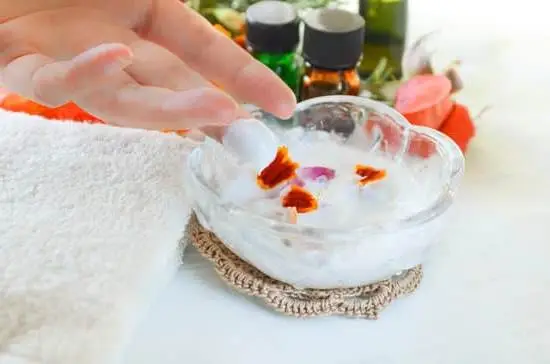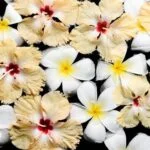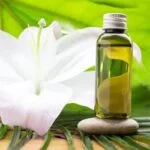Aromatherapy oils have been used for centuries as a natural way to promote relaxation, improve mood, and alleviate certain health conditions. One popular method of using these oils is through diffusers, which are devices that disperse the aroma of the oils into the air. This article will explore the science behind aromatherapy oils and how they can be effectively used in diffusers.
Aromatherapy oils are derived from various plants, flowers, and herbs and contain highly concentrated extracts of their beneficial properties. When used in diffusers, the oils are vaporized and released into the air, allowing the therapeutic aroma to be inhaled and absorbed by the body. Understanding the properties of different essential oils is crucial in determining which ones are best suited for use in diffusers.
In this section, we will delve into the basics of aromatherapy oils and how they interact with our sense of smell and overall well-being. We will also explore the various types of diffusers available on the market and how to choose one that is most suitable for using aromatherapy oils. Furthermore, we will discuss the benefits of using these oils in diffusers, including their potential effects on mood, stress levels, and overall health.
Types of Diffusers
When it comes to using aromatherapy oils in diffusers, it’s important to understand the different types of diffusers available and which one is best suited for your needs. Each type of diffuser has its own unique way of dispersing essential oils into the air, and the right choice can make a difference in the effectiveness of your aromatherapy experience.
Types of Diffusers
There are several common types of diffusers, including ultrasonic, nebulizing, heat, and evaporative diffusers. Ultrasonic diffusers use vibrations to disperse the essential oils into the air as a fine mist, while nebulizing diffusers break down the oils into a more concentrated form before releasing them. Heat diffusers use warmth to evaporate the oils, and evaporative diffusers use a fan or natural air flow to disperse the scent.
Choosing the Right Diffuser
When deciding on a diffuser for aromatherapy oils, consider factors such as room size, desired aroma intensity, and ease of maintenance. Ultrasonic diffusers are popular for their ability to cover large areas and provide a gentle aroma, while nebulizing diffusers are favored for their strong scent dispersion. For smaller spaces or travel purposes, heat or evaporative diffusers may be more suitable.
Can Aromatherapy Oils Be Used in Diffusers?
Aromatherapy oils can absolutely be used in diffusers. In fact, that’s one of their primary uses. Whether you prefer a calming lavender scent or an energizing citrus blend, using aromatherapy oils in a compatible diffuser can help create an inviting atmosphere and promote overall well-being. Just remember to choose an appropriate type of diffuser based on your preferences and needs.
The Benefits of Using Aromatherapy Oils in Diffusers
Aromatherapy oils have been used for centuries for their therapeutic benefits, and diffusing these oils can be an effective way to enjoy their aromatic and healing properties. There are several benefits to using aromatherapy oils in diffusers, making them a popular choice for promoting overall well-being.
Benefits of Using Aromatherapy Oils in Diffusers
There are numerous benefits to using aromatherapy oils in diffusers, including:
- Improved Sleep: Certain essential oils, such as lavender and chamomile, have been shown to promote relaxation and improve sleep quality when used in a diffuser.
- Mood Enhancement: Aromatherapy oils like citrus or peppermint can uplift the mood and reduce feelings of stress or anxiety when diffused.
- Air Purification: Many essential oils have antimicrobial properties that can help purify the air when diffused, creating a healthier indoor environment.
In addition to these benefits, using aromatherapy oils in diffusers can also enhance concentration and focus, relieve respiratory issues, and create a more inviting atmosphere in any space. Whether used at home or in the workplace, the benefits of diffusing essential oils can positively impact overall wellness.
Overall, the use of aromatherapy oils in diffusers offers a natural and holistic approach to improving physical, emotional, and mental well-being. With the right selection of essential oils and proper use of a quality diffuser, individuals can experience a range of therapeutic benefits while enjoying delightful scents throughout their surroundings.
Safety Precautions When Using Aromatherapy Oils in Diffusers
When using aromatherapy oils in diffusers, it is important to take certain safety precautions to ensure that you and your loved ones are not exposed to any potential risks. Here are some essential safety measures to keep in mind:
1. Dilution: Before using any aromatherapy oil in a diffuser, it is crucial to dilute the oil with a carrier oil such as coconut, jojoba, or almond oil. This helps to reduce the potency of the essential oil and prevents any adverse skin reactions or respiratory issues for those inhaling the oils.
2. Ventilation: It is important to use aromatherapy oils in well-ventilated areas to prevent the buildup of strong odors that can sometimes cause discomfort or headaches. Proper ventilation also helps in maintaining air quality and ensuring that the aroma does not become overpowering.
3. Child and pet safety: When using aromatherapy oils in diffusers, it is essential to keep them out of reach of children and pets. Some essential oils can be toxic if ingested, so it’s important to store them safely and use caution when diffusing around young children or animals.
In addition, always make sure to do a patch test on a small area of your skin before applying any new essential oils directly on your body. This can help prevent allergic reactions or skin sensitivities. By following these safety precautions, you can enjoy the benefits of aromatherapy oils in diffusers without compromising your well-being or that of others around you.
- Dilution
- Ventilation
- Child and pet safety
Popular Aromatherapy Oils for Diffusers and Their Uses
Lavender Oil
Lavender oil is one of the most popular aromatherapy oils for diffusers due to its calming and relaxing properties. It is often used to promote a good night’s sleep, reduce anxiety and stress, and alleviate headaches. The gentle floral scent of lavender oil can also help create a peaceful and serene atmosphere in your home.
Peppermint Oil
Peppermint oil is known for its invigorating and refreshing aroma. When used in a diffuser, it can help enhance mental focus, boost energy levels, and provide relief from congestion or headaches. The cooling sensation of peppermint oil can also promote feelings of alertness and rejuvenation.
Eucalyptus Oil
Eucalyptus oil is commonly used in diffusers to support respiratory health, especially during the cold and flu season. Its strong, fresh scent can clear the sinuses and ease breathing difficulties. Additionally, eucalyptus oil can act as a natural insect repellent when diffused outdoors.
These are just a few examples of popular aromatherapy oils that can be safely used in diffusers to promote physical and emotional well-being. It is important to note that not all essential oils are suitable for use in diffusers, so it’s essential to do thorough research and consult with a qualified aromatherapist before using any new oils in your diffuser.
How to Properly Use Aromatherapy Oils in Diffusers
Aromatherapy oils can be used in diffusers to create a pleasant, soothing atmosphere in your home or workspace. When using aromatherapy oils in diffusers, it’s important to understand the proper way to do so to maximize their benefits and ensure safety.
Firstly, it’s crucial to choose high-quality, pure essential oils for use in your diffuser. Synthetic oils or those with added chemicals may not provide the same therapeutic benefits and could even be harmful when dispersed into the air. Look for reputable brands and check that the oils are labeled as 100% pure.
Once you have selected your aromatherapy oil, the next step is to determine the right amount to use in your diffuser. It’s generally recommended to add between 5-10 drops of essential oil per 100ml of water in your diffuser tank. However, it’s important to refer to the specific guidelines provided by your diffuser manufacturer as different models may have varying capacities and recommendations.
When filling up your diffuser, always ensure that you add water first before adding the essential oil. This can help prevent any potential damage to the ultrasonic plate or other components within the diffuser. After adding both water and oil, follow the manufacturer’s instructions for turning on and operating the device. Pay attention to any additional features such as timer settings or mist intensity control that can enhance your aromatherapy experience.
| Aromatherapy Oil | Recommended Drops |
|---|---|
| Lavender | 6-8 drops |
| Peppermint | 5-6 drops |
| Eucalyptus | 7-10 drops |
Cleaning and Maintaining Your Aromatherapy Oil Diffuser
Aromatherapy oils are a popular choice for use in diffusers, as they not only fill the air with delightful scents but also offer various health benefits. When using aromatherapy oils in diffusers, it’s essential to understand the importance of cleaning and maintaining your diffuser to ensure its effectiveness and longevity.
Regular maintenance of your aromatherapy oil diffuser is crucial to prevent the buildup of residue and mold, which can affect the quality of the scent and may even pose health risks. To clean your diffuser, start by unplugging it and emptying any remaining water and oil.
Use a soft cloth or cotton swab dipped in rubbing alcohol to wipe down the interior of the tank, ensuring that any stubborn residue is removed. Remember to also clean the ceramic disc or ultrasonic plate if your diffuser uses one.
Proper maintenance not only ensures that your aromatherapy oil diffuser continues to function effectively but it also prolongs its lifespan. By taking the time to clean and maintain your diffuser regularly, you can continue to enjoy the benefits of using aromatherapy oils while extending the life of your device.
| Topic | Details |
|---|---|
| Cleaning Frequency | It is recommended to clean your aromatherapy oil diffuser once a week, or more often if you use it frequently. |
| Maintenance Tips | Regularly check for mineral buildup and ensure proper ventilation around the unit. |
| Effect on Aromatherapy Benefits | A clean and well-maintained diffuser can help preserve the therapeutic properties of aromatherapy oils. |
The Future of Aromatherapy Oils in Diffusers
As the popularity of aromatherapy oils and diffusers continues to grow, it’s natural to wonder what the future holds for these products. With advancements in technology and a greater understanding of the benefits of aromatherapy, there are several exciting developments on the horizon.
One potential advancement in the use of aromatherapy oils in diffusers is the development of smart diffuser technology. Smart diffusers can be controlled via smartphone app, allowing users to customize their aromatherapy experience with ease. Some models may even have the ability to integrate with other smart home devices, creating a seamless and convenient experience for users.
Another trend that is expected to gain traction in the future is the use of more sustainable and eco-friendly materials in aromatherapy oil diffusers. As consumers become increasingly conscious of their environmental impact, there is a growing demand for products that are not only effective but also environmentally responsible. Manufacturers are likely to respond to this demand by offering diffusers made from sustainable materials and using packaging that is recyclable or biodegradable.
Furthermore, ongoing research into the therapeutic benefits of aromatherapy oils may lead to the development of new blends specifically tailored to address certain health concerns. This could open up new possibilities for using aromatherapy oils in diffusers as a complementary therapy for various conditions such as stress, insomnia, and respiratory issues.
Additionally, as more people become interested in holistic wellness practices, we can expect to see an increase in the availability of high-quality, therapeutic-grade essential oils that are suitable for use in diffusers.
These potential developments indicate that the future looks bright for utilizing aromatherapy oils in diffusers. With continued innovation and research, it’s likely that we will see even more effective, user-friendly, and sustainable options for incorporating aromatherapy into our daily lives.
Bonus Section
In conclusion, aromatherapy oils can indeed be used in diffusers, and this includes for pets. However, it is essential to exercise caution and ensure that the oils being used are safe for animals. While some essential oils can have positive effects on pets, others can be harmful or even toxic. It is crucial to research and consult with a veterinarian before using any aromatherapy oils in diffusers around your pets.
When choosing aromatherapy oils for use in diffusers for pets, it is important to select ones that are known to be safe for the specific type of animal. For example, lavender and chamomile are often recommended for use with dogs and cats to help promote relaxation and reduce anxiety. On the other hand, certain oils like tea tree and wintergreen should be avoided as they can be toxic to pets.
In addition to selecting the right oils, it is also important to use diffusers in a safe and responsible manner around pets. This includes properly diluting the oils, ensuring good ventilation in the room, and monitoring your pet’s behavior to ensure they are not showing any signs of discomfort or distress. By following these guidelines, pet owners can safely enjoy the benefits of aromatherapy oils in diffusers while promoting their pet’s well-being at the same time.
Frequently Asked Questions
What Aromatherapy Oils Can You Diffuse?
Aromatherapy oils that can be diffused include lavender, peppermint, eucalyptus, tea tree, lemon, and bergamot, among others. These oils are known for their calming, invigorating, and uplifting properties when diffused.
What Essential Oils Should Not Be Used in a Diffuser?
Essential oils that should not be used in a diffuser include thick or resinous oils such as vetiver or sandalwood, as they can clog the diffuser. Additionally, citrus oils like lemon or grapefruit can cause damage to certain types of diffusers due to their high acidity.
Can You Use Any Brand of Oil in a Diffuser?
Not every oil brand is suitable for use in a diffuser. It’s important to choose high-quality essential oils specifically labeled for aromatherapy or diffusion.
Using poor quality or adulterated oils may not only affect the performance of the diffuser but also pose health risks when inhaled. Always research and select reputable brands known for their purity and quality standards.

Are you looking for a natural way to improve your health and wellbeing?
If so, aromatherapy may be the answer for you.





